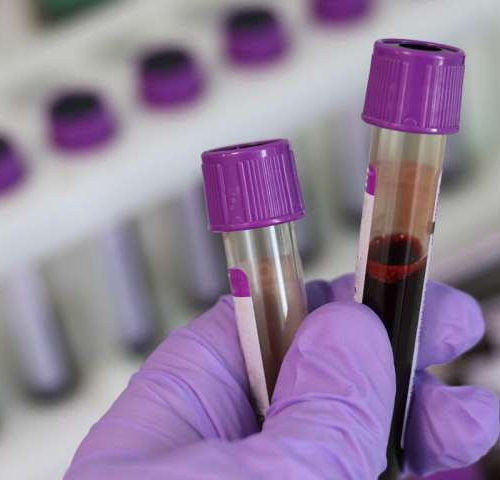Evidence from a large study of several thousand patients shows that men have higher concentrations of angiotensin-converting enzyme 2 (ACE2) in their blood than women. Since ACE2 enables the coronavirus to infect healthy cells, this may help to explain why men are more vulnerable to COVID-19 than women. The study, published in the European Heart...
Tag: <span>blood test</span>
Seven things you might not know about blood
by Adam Taylor, The Conversation Blood is fascinating. Many people learn at school that its function is to transport oxygen and nutrients around the body and remove waste products. But blood has many more functions, including defence against pathogens, regulating our temperature, and keeping important internal chemicals and nutrients balanced. Here are some other things...
What are the symptoms of viral pneumonia?
Viral pneumonia is pneumonia that develops as a result of a viral infection in the lungs. The symptoms of viral pneumonia are often similar to those of bacterial pneumonia, but, depending on the virus responsible, there may be a few additional symptoms. A wide range of viruses can cause viral pneumonia, including influenza and coronaviruses,...
Simple blood test could help reduce heart disease deaths
by Newcastle University Scientists at Newcastle University have revealed how a simple blood test could be used to help identify cardiovascular ageing and the risk of heart disease. For the first time, experts led by Professor Konstantinos Stellos report that higher levels of amyloid-beta in the blood may be a key indicator of cardiovascular disease....
Biomarkers pave way for blood test to predict Parkinson’s progression
By Nick Lavars When Parkinson’s patients are diagnosed with the condition, there are still many unknowns around how the disease will develop and how it will impact their lives. While it is no crystal ball, a new blood test developed at Newcastle University and Cambridge University in the UK is offering hope of better patient...
Blood test identifies risk of disease linked to stroke and dementia
by Sarah C.p. Williams, University of California, Los Angeles A UCLA-led study has found that levels of six proteins in the blood can be used to gauge a person’s risk for cerebral small vessel disease, or CSVD, a brain disease that affects an estimated 11 million older adults in the U.S. CSVD can lead to...
Blood test for deadly eye melanoma
A simple blood test could soon become the latest monitoring tool for the early detection of melanoma in the eye. University of Queensland scientists have discovered markers in the blood that can differentiate between a benign mole and a melanoma, while also identifying if the cancer has spread to other areas of the body. UQ Diamantina Institute’s Dr...
ENGINEER FINDS WAY TO PULL DISEASES FROM BLOOD USING MAGNETS
“IN THEORY, YOU CAN GO AFTER ALMOST ANYTHING. POISONS, PATHOGENS, VIRUSES, BACTERIA…” BY KRISTIN HOUSER A British engineer has found a way to filter unwanted cells from blood using magnets — and his tool could be used in clinical trials as soon as next year. Thanks to existing research, biochemical scientist George Frodsham knew it...
Blood test can help GPs spot ovarian cancer in women with suspicious symptoms
by National Cancer Research Institute Testing for levels of CA125 in the blood is a useful tool for gauging the likelihood of ovarian cancer and could help detect other types of cancer among patients in primary care, according to research presented at the 2019 NCRI Cancer Conference. Although the CA125 test is already in use...
Understanding Laboratory Blood Test Results
By Chloe Bennett, B.Sc.Reviewed by Dr. Mary Cooke, Ph.D. The properties of the blood and the ease of its retrieval make it a useful source for doctors to analyze to measure specific features of homeostasis within patients. This allows for accurate diagnosis and treatment options to be prescribed. How do Blood Tests Work? Taking blood samples from patients is typically used...





